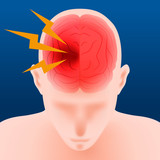Reliving Terror

At the end of my last post, I wrote about the shame connected to childhood abuse that must be relived in couple relationships. Couples in which one or both partners were victims of childhood abuse will likely also be reliving terror. Terror is the feeling that leads to a flight or freeze response. The victim experiences […]
Reliving Shame

Because the emotion of shame usually derives from having done something “wrong” in the eyes of significant others, it is inevitably part of every important relationship. That look of disapproval or disgust that accompanies shame-filled experiences is such a blow to our self-esteem that creates so much subjective pain; it is no wonder we avoid […]
The Dysregulated Emotions of Tra...

When couples come to us for treatment, they have frequently been struggling with the dysregulated emotions of trauma. Their right brains have been correctly mutually creating an outlet for these unmetabolized emotions through their recycling dramas, but the partners usually do not know what to do with them and have almost always developed a sizable amount […]
Elements of Treatment Success Be...

Another way of thinking about this post might be the old adage, “You can lead a horse to water, but you can’t make him drink.” Couples therapists are not responsible and cannot control the timing of a couple’s desire to be together or their readiness to use therapy. Every person’s right brain (nonconscious) is completely […]
Roadblocks in Therapy

Every skilled couples therapist needs to have some ideas about what to do when the treatment doesn’t seem to be working. Fears of failure begin to creep into even the most experienced of us, so knowing how to identify the roadblocks in therapy can help us redirect the work and reduce feelings of responsibility for elements […]
Mining Conflicts

In previous posts, I have explained why it is countertherapeutic to shut down the repetitive conflicts that bring couples to therapy. Within those conflicts are the unmetabolized feelings that their right brains have been waiting to experience and voice. The therapist’s job is to mine their conflicts for every possible ounce of meaningful emotions that […]
Therapeutic Response to Needed C...

Conflicts in couple relationships hand us the potential for profound, deep, permanent change “on a silver platter”. Knowing how to respond to this opportunity is the key to effective couples treatment. Too often couple conflicts make therapists anxious, and they prematurely shut down the most fertile ground for empathy and understanding. In a previous blog post, I […]
Needing Conflicts

The concept of needing conflicts is central to understanding how Neurodynamic Couples Therapy heals. Some other forms of couples treatment characterize conflict as simply an important avenue for communication and negotiation between partners. A popular notion of marital health says that couples have to fight in order to work out their differences–i.e., partners who fight together stay […]
Transformation

Some form of transformation is the stated or at least implied promise of most types of psychotherapy, including Neurodynamic Couples Therapy. The term literally means “changing form”, although Google goes further and says that transformation is some type of extreme, radical change. What are we promising to transform in couples treatment–changing a bad relationship into a good […]
“Reading the Room”

Every good comedian knows that in order to be successful at their job they must be adept at reading the room. This means watching the body language of the patrons in the audience, looking for signs of inattention or boredom, and being able to feel whether there is a connection with their audience. An entertainer who […]
